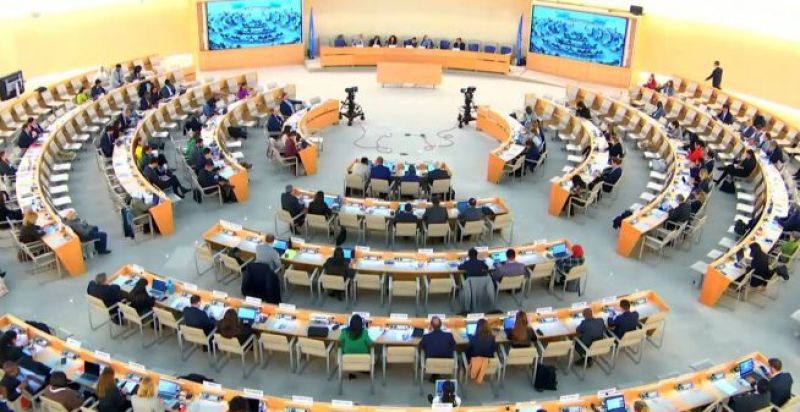
Last week, the UN Human Rights Committee expressed alarm over the rising number of false blasphemy accusations in Pakistan, urging the government to repeal or amend the country's strict blasphemy laws.
The committee emphasized that these false accusations often lead to Islamist mob violence and recommended revising the laws to align with the International Covenant on Civil and Political Rights (ICCPR).
In its concluding observations dated November 7 regarding Pakistan's second periodic report, the committee expressed particular concern about sections 295 and 298 of the Pakistan Penal Code, which impose severe penalties, including the death penalty, disproportionately affecting religious minorities. Furthermore, it advised against the use of cybercrime legislation, including the Prevention of Electronic Crimes Act (PECA) 2016, to prosecute individuals accused of breaching blasphemy laws online.
The committee also called on the government to investigate allegations of extensive abuse of blasphemy laws in conjunction with cybercrime laws and to publish the findings of these investigations.
They stated, “The committee is also concerned about the chilling effect that criminal defamation laws, blasphemy, sedition and counter-terrorism laws, and other recently passed legislation have on the exercise of freedom of expression by journalists, activists, human rights defenders, and members of ethnic and religious minorities.” It cited reports of increasing violence and intimidation directed at religious minorities in Pakistan, along with the destruction of their places of worship.
Highlighting the lack of protection and accountability for crimes against religious minorities, the UN rights body recommended that Pakistan implement measures to prevent all forms of discrimination and violence against these groups. It called for immediate actions to safeguard women and girls, particularly those from religious minorities, from forced conversions to Islam and forced marriages.
The committee insisted that the government “must raise the minimum age of marriage for both boys and girls to 18 years throughout the country without exceptions.” Additionally, it urged that all allegations of forced conversions and forced marriages of girls be investigated, ensuring that those responsible are brought to justice and victims receive access to support services like shelters, legal aid, and rehabilitation programs.
While acknowledging the adoption of the Protection of Journalists and Media Professionals Act 2021, the committee raised concerns regarding frequent reports of forced disappearances, torture, killings, threats, and harassment faced by journalists and human rights defenders in Pakistan. It urged the country to investigate these incidents thoroughly, prosecute the perpetrators, and provide compensation to victims.
The committee also expressed concern over the frequent internet shutdowns and restrictions on social media, urging Pakistan to uphold freedom of expression and ensure that laws are not weaponized to silence journalists and human rights defenders. It noted that Pakistani legislation punishes over 30 crimes, including non-violent offenses, with the death penalty, which does not meet the threshold of the “most serious crimes” as defined by the ICCPR, including blasphemy.
During its 142nd session held on October 17-18 in Geneva, the committee reviewed reports from six countries, including Ecuador, France, Greece, Iceland, Pakistan, and Türkiye, ultimately issuing conclusions with concerns and recommendations related to the ICCPR and other relevant conventions.
Pakistan ranked seventh on Open Doors’ 2024 World Watch List of the most challenging places to be a Christian, maintaining its position from the previous year.


















